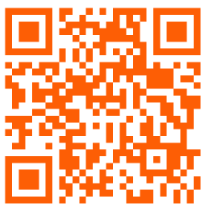The Hospitality and Professional Services Industry and Health and Safety
The Hospitality and Professional Services industry in South Africa is a dynamic and essential pillar of the nation’s economy, deeply intertwined with the tourism sector. As a key contributor to economic growth, this industry not only drives employment but also fosters the development of related sectors such as agriculture, retail, and transportation. Encompassing a wide spectrum of establishments—from luxury hotels and idyllic resorts to bustling restaurants, charming cafes, and state-of-the-art event venues—the industry caters to a broad array of needs and preferences.
It also includes travel agencies and tour operators that craft bespoke experiences, as well as a host of professional services, including consulting, legal, and marketing firms, which support and sustain the industry's operations. By attracting both domestic and international visitors, the Hospitality and Professional Services sector plays a pivotal role in showcasing South Africa’s rich cultural heritage, stunning natural landscapes, and unique offerings, making it a cornerstone of the country’s global tourism appeal.
If there is any way that we can assist, kindly leave your details for one of our Expert Consultants to give you a no-obligation call.
Key Features and Offerings of the Hospitality and Professional Services Industry:
Diverse Accommodation and Dining: From luxury hotels and eco-lodges to budget hostels, and from traditional South African cuisine to international gourmet experiences, the industry offers something for every traveller.
Cultural and Natural Heritage: The industry leverages South Africa’s rich cultural diversity and stunning landscapes, offering unique experiences like the Winelands, Zulu cultural tours, and safaris in the Kruger National Park.
Sector Integration: The industry is interlinked with agriculture, retail, and transportation, enhancing its offerings and supporting local economies.
Seasonality and Employment: The industry experiences seasonal demand fluctuations, particularly during school holidays and major events, and is a significant employer of both skilled and unskilled labour.
Challenges and Dynamics of the Professional Services Industry:
Economic Sensitivity: The industry is vulnerable to fluctuations in the rand and economic inequality, affecting visitor numbers and profitability, especially in rural areas.
Infrastructure and Accessibility: Inconsistent infrastructure and utility services like load-shedding and water shortages pose challenges, particularly for high-end businesses.
Regulatory and Skills Challenges: Strict visa regulations and BEE compliance can complicate business operations, while attracting and retaining skilled workers remains a challenge in a competitive global market.
Technological and Sustainability Demands: Rapid technological changes require continuous adaptation, and there’s increasing pressure to adopt sustainable practices.
Global Shocks: The industry is highly susceptible to external shocks, including economic downturns, political instability, and global health crises.
Strategies for Growth and Employment:
Skills Development: Invest in training and education to ensure a skilled workforce capable of delivering high-quality service.
Innovation and Technology: Embrace digital tools and foster innovation to stay competitive and meet evolving customer expectations.
Sustainability and Domestic Tourism: Promote eco-tourism and sustainable practices, and encourage domestic tourism to reduce reliance on international markets.
Rural Development and MICE Sector: Expand infrastructure in rural areas to promote inclusive growth and invest in the Meetings, Incentives, Conferences, and Exhibitions (MICE) sector to attract international events.
Distinctive Factors in Health and Safety Measures
The South African hospitality and professional services industry is distinct in its health and safety measures due to the need to balance local challenges with international standards.
International Standards Compliance: The hospitality sector aligns with global health and safety protocols, such as ISO certifications, particularly in high-end establishments that cater to international visitors
Local Health Concerns:
Malaria Prevention: In malaria-prone areas, strict mosquito control, including prophylactic advice, use of nets, and regular fumigation, is standard.
Water Safety: In regions with substandard tap water, establishments provide bottled water, ensure filtration systems, and uphold strict food hygiene.
Customised Security Protocols: Due to crime concerns, enhanced security measures, including surveillance, secure premises, and trained personnel, are widely implemented.
Regulatory Compliance and Audits: Compliance with health and safety regulations is mandatory, with regular audits conducted, especially in high-traffic tourist areas.
Health Crisis Response:
COVID-19: The industry swiftly adopted advanced health protocols, such as contact tracing, mask mandates, sanitisation stations, and social distancing, now integrated into routine operations.
Training and Awareness: Staff receive ongoing training in first aid, emergency response, and hygiene practices.
Sustainable Health Practices: There’s a growing emphasis on eco-friendly cleaning products, reducing single-use plastics, and implementing waste management systems that prioritise guest safety and environmental conservation
Guest Education and Transparency: Proactive measures include informing guests about local health risks and safety protocols, often through check-in briefings and in-room information.
Integration with Local Health Services: Collaboration with local healthcare providers ensures access to medical services, with some remote lodges having on-site medical staff or emergency services.
Unique Challenges:
Infrastructure Limitations: Remote areas often rely on innovative solutions like telemedicine due to limited healthcare access.
Cultural Sensitivity: Health and safety practices are adapted to respect local customs, particularly in indigenous communities.
High Crime Rates: Additional security measures are necessary to protect both staff and guests.
Wildlife and Environmental Factors: Regions with wildlife risks, such as snakes, require specific safety precautions.
Risk Profile and Liability: Hospitality sectors, such as game reserves and boutique lodges, face higher liability risks due to the inherent dangers of their activities, unlike the lower-risk office environments typical in professional services
Integrating Walli into Your Health and Safety Strategy
By integrating Walli, your personal Health and Safety AI companion, into your leadership strategy, you can streamline your OHS management, enhance compliance, and foster a culture of safety within your organisation. Walli’s support empowers you to take proactive steps, stay informed, and ensure your employees are protected.
Your role in OHS is not just about meeting legal requirements—it's an opportunity to demonstrate your commitment to your team, improve business performance, and leave a lasting positive impact. Embrace Walli, and transform your workplace safety practices for a safer, more compliant, and productive environment. Let's make safety a cornerstone of your leadership legacy!
Not using Walli yet? Scan the below QR Code to gain access
Here are some examples of comprehensive health and safety practices that are commonly implemented in the hospitality sector:
Strict Safety Protocols for Wildlife Activities:
- Detailed safety briefings for guests before game drives or walks.
- Specialised training and certification for safari guides.
- Strict rules and procedures for approaching or interacting with wild animals.
- Emergency response plans for animal-related incidents.
Emergency Preparedness for Natural Disasters:
- Comprehensive emergency action plans for events such as fires, floods, or severe storms.
- Regular emergency drills and training for staff.
- Backup power, communication systems, and evacuation procedures.
- Partnerships with local emergency services.
Extensive Staff Training and Safety Programmes:
- Mandatory health and safety training for all staff.
- First aid and emergency response training.
- Hazard identification and risk mitigation programmes.
- Ongoing safety awareness and refresher courses.
Guest Health and Safety Measures in Accordance with the Occupational Health and Safety Act:
- Clear signage and instructions for hazardous areas or activities.
- Provision of personal protective equipment (e.g., life jackets, harnesses).
- Supervision and monitoring of high-risk guest activities.
- Incident reporting and investigation procedures.
Integrated Risk Management Systems:
- Comprehensive risk assessments and mitigation strategies.
- Dedicated safety and security teams or departments.
- Regular safety audits and continuous improvement processes.
- Collaboration with industry bodies and regulatory authorities.
These types of comprehensive safety practices help hospitality businesses in South Africa manage the unique risks associated with their operations and ensure the well-being of both guests and staff.
SafetyWallet, My Safety Shop, and MAKROSAFE (an Authorised Dealership of SafetyWallet) can play a pivotal role in enhancing health and safety practices in the hospitality sector. Here are some tailored suggestions on how these platforms can assist:
SafetyWallet
Policy Development and Compliance:
SafetyWallet can provide templates and guidance for developing comprehensive health and safety policies that align with the Occupational Health and Safety Act. This includes protocols for wildlife activities, emergency preparedness, and guest safety measures.
Offer e-Learning and formal training programmes for staff, including specialised training for safari guides and emergency response training. This ensures that all employees are well-equipped to handle safety protocols effectively.
Risk Assessment Tools:
Utilise SafetyWallet’s risk assessment tools to conduct thorough evaluations of potential hazards associated with wildlife activities and natural disasters. This can help in developing tailored mitigation strategies.
Incident Reporting and Management:
Implement an incident reporting system through SafetyWallet to streamline the documentation and investigation of any safety incidents, ensuring compliance with legal requirements.
Emergency Preparedness Plans:
Assist in creating and regularly updating comprehensive emergency action plans, including evacuation procedures and communication strategies, to prepare for natural disasters.
MySafetyShop
Personal Protective Equipment (PPE):
MySafetyShop can supply essential PPE for staff and guests, such as life jackets, harnesses, and first aid kits, ensuring that safety measures are readily available and compliant with regulations.
Safety Signage and Communication:
Provide clear and effective signage for hazardous areas or activities, helping to inform guests and staff about safety protocols and emergency procedures.
Safety Audit Checklists:
Offer customisable safety audit checklists that hospitality businesses can use to conduct regular safety inspections and ensure compliance with health and safety standards.
MAKROSAFE
Integrated Risk Management Solutions:
MAKROSAFE can assist in implementing integrated risk management systems that encompass comprehensive risk assessments, safety audits, and continuous improvement processes tailored to the hospitality sector.
Collaboration with Regulatory Authorities:
Facilitate partnerships with local emergency services and regulatory bodies to enhance emergency preparedness and ensure compliance with industry standards.
Dedicated Safety and Security Teams:
Support the establishment of dedicated safety and security teams within hospitality businesses to oversee the implementation of safety protocols and respond to incidents effectively.
By leveraging the resources and expertise of SafetyWallet, MySafetyShop, and MAKROSAFE, hospitality businesses can significantly enhance their health and safety practices. This not only ensures compliance with legal requirements but also fosters a culture of safety that prioritises the well-being of both guests and staff. Engaging with these platforms can lead to improved safety outcomes, reduced risks, and a more secure environment for all stakeholders involved.
Integrating Triple P policies, procedures, and practices with Behaviour Based Safety principles is essential for creating a safe and healthy work environment. By combining structural safeguards with behavioural interventions, organisations can effectively mitigate risks, promote a proactive safety culture, and achieve sustained safety excellence.
Our Health and Safety Management System (HSMS) is available at no cost to all SafetyWallet subscribers, and supported by MAKROSAFE team members. This means you are able to get a state-of-the-art system with operational support for your entity thereby improving the health and safety in the workplace as well as improving your legal compliance to Health and Safety Legislation.
Have questions? Engage with us through the chat box on your screen—we're here to guide you toward a safer, more compliant future.
To find out what other Additional Services we offer, please click on the picture below:
SAFETYWALLET In Co-operation with MAKROSAFE and MY SAFETY SHOP
Disclaimer:
Walli can make mistakes. Consider checking important information and please speak to SafetyWallet's support team, should you be in doubt. Please also see: https://www.safetywallet.co.za/termsandconditions



Leave a comment